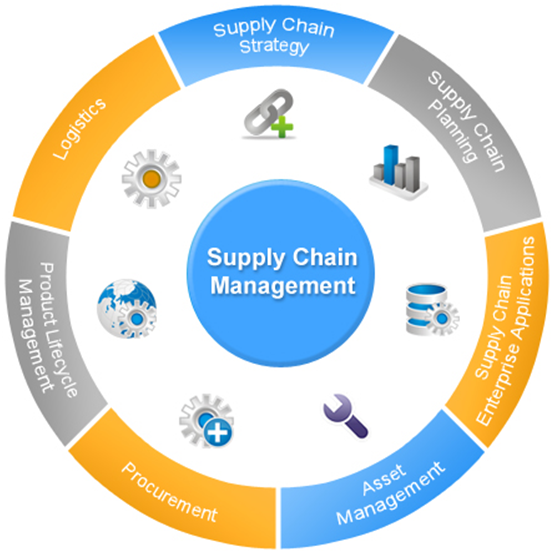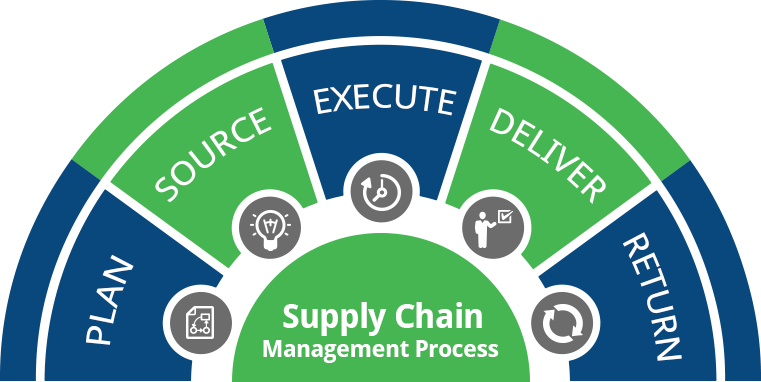The future of supply chain management lies in leveraging digitalization for a competitive advantage. Through the use of data analytics organizations can optimize their supply chain processes, improve efficiency, and gain better visibility into the entire process.
Introduction
Supply chain management evolved from being just a logistics and transportation function to a strategic business process that has a significant impact on a company’s bottom line.
As businesses become more globalized and customer expectations continue to rise, supply chain management is becoming more complex and challenging.
- The Importance of Digitalization in Supply Chain Management
Digitalization has revolutionized every aspect of business operations, and supply chain management is no exception. The use of digital technologies such as IoT, big data, cloud computing, and artificial intelligence has enabled companies to streamline their supply chain processes and gain valuable insights into their operations.


Digitalization has transformed the way businesses operate, and it has had a significant impact on supply chain management. It has enabled companies to optimize their supply chain processes, improve their forecasting accuracy, and enhance their overall efficiency.
Digitalization has also enabled companies to respond more quickly to changing customer needs and market demands.
- The Role of IoT in Supply Chain Management
The Internet of Things (IoT) is one of the most significant technological advancements that have had an impact on supply chain management.
IoT devices such as sensors, beacons, and RFID tags can collect real-time data on the movement of goods through the supply chain. This data can be used to optimize transportation routes, reduce lead times, and improve inventory management.
IoT devices can also help companies to track the condition of their goods during transportation. For example, temperature sensors can be used to monitor the temperature of perishable goods during transportation. This information can be used to ensure that the goods are delivered in optimal condition.
- The Role of Big Data in Supply Chain Management
Big data has become an essential tool for companies that want to gain insights into their supply chain operations. By analyzing large volumes of data from multiple sources, companies can gain valuable insights into their supply chain processes.
Big data analytics can help companies to identify bottlenecks in their supply chain, predict demand, and optimize their inventory levels. Big data analytics can also help companies to reduce their operating costs.
By analyzing data on transportation routes and modes, companies can identify opportunities to reduce transportation costs. By optimizing their inventory levels, companies can reduce their carrying costs and improve their cash flow.
- The Role of Cloud Computing in Supply Chain Management
Cloud computing has enabled companies to access their supply chain data from anywhere in the world. This has made it easier for companies to collaborate with their suppliers, partners, and customers.
Cloud-based supply chain management systems can also help companies to improve their data security and reduce their IT infrastructure costs.
Cloud-based supply chain management systems can also provide real-time visibility into the supply chain. This can help companies to track the movement of goods through the supply chain and respond quickly to any disruptions.
Cloud-based systems can also help companies to improve their collaboration with their partners and suppliers, enabling them to share data more easily.


- The Role of Artificial Intelligence In Supply Chain Management
Artificial intelligence (AI) has the potential to transform supply chain management. AI algorithms can analyze large volumes of data and identify patterns and trends that humans may not be able to detect.
AI can be used to optimize transportation routes, predict demand, and improve inventory management. AI can also be used to automate repetitive tasks in the supply chain, such as order processing and inventory management.
This can help companies to reduce their operating costs and improve their efficiency. AI-powered chatbots can also improve customer service by providing real-time responses to customer inquiries.
Conclusion
Digitalization is transforming the entire supply chain process. With the help of data analytics and AI, organizations can optimize their supply chain operations and gain a competitive advantage.
However, digitalization also presents several challenges, including the cost of implementation, data privacy and security, and change management.
To overcome these challenges, organizations must carefully weigh the costs and benefits of digitalization and develop a robust strategy. This strategy should include a plan for employee training and communication, as well as measures to ensure data privacy and security.
By leveraging digitalization, organizations can transform their supply chain operations and gain a competitive advantage in the marketplace.






